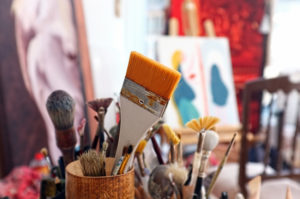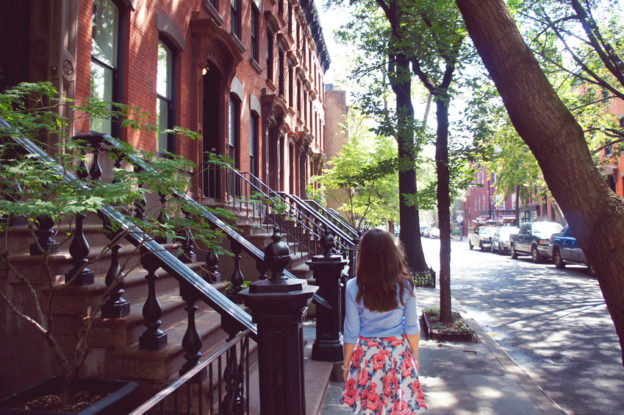Before the sun kissed the sky, I walked in. I sat in a church basement surrounded by shadows, listening to a presentation on Street Sense magazine.
“Street Sense employs the homeless as vendors,” the coordinator stated. “Their paychecks are determined by the amount of magazines they sell.”
My gaze drifted to the vendors who wore green smocks and carried satchels full of magazines.
“You’ll partner with a vendor and sell magazines,” he continued. “The volunteer that sells the most will win a prize”.
My eyes widened. I was paired with Dwight, a seasoned vendor. We zigzagged our way to K Street. Beads of sweat christened my face. I glanced at the suit Dwight wore under his smock.
“Why are you wearing a suit?” I inquired.
“Because I’m invisible if I don’t,” he passively answered. He held his stack of magazines above his head and declared, “Street Sense!”
Optimistically, I pantomimed Dwight’s actions. Despite my efforts, everyone earnestly evaded me. Some distracted themselves with their phones. Others crossed the street. Apathy. Distain. Ignorance. Their shadows cast everywhere.
“Tired already? Come on Ms. Chicago, keep up the work!” my partner encouraged.
I watched a businessman swiftly walk by Dwight, keeping his eyes fixed downwardly. Surprisingly I saw myself in that businessman. We both silently clung to misconstrued perceptions of the homeless.
Seeing Dwight weighed down by his unsold magazines illuminated the shame of inaction. Instead, I needed to lobby for change. At the top of my lungs I proclaimed, “Street Sense! Make a difference in the life of the homeless”. My stack of magazines dwindled. I beamed at Dwight, who returned my smile.
An hour later, I returned to the church, empty-handed and was declared the winner. At the end of the day I won the prize, but I hoped tomorrow Dwight would not have to chase shadows on K Street.
“Recognize their responsibility to the public interest… unless graduates are willing to put back into our society those talents, the broad sympathy, the understanding, the compassion, then obviously the presuppositions upon which our democracy are based are bound to be fallible.”

Fatigue weighed heavily on my eyes, as I faced the dirtied easel in Room 107 at the Uptown Head Start. The easel stood between my anticipated nap and volunteer duties. Although the room was dim, I could vividly see the areas where dried blue and green paint parasitically attached itself to the white easel.
“The kids nap for an hour,” the preschool teacher whispered as she handed me a towel and a bottle of liquid soap. “Try to get this easel clean by then”.
I squirted the soap solution on the easel and scrubbed. The paint was dense and difficult to remove. My arm soon grew weary from the mundane task. I thought about the biology homework I had to complete. I sprayed more soap, but after three minutes the easel seemed dirtier than when I began.
I rested my arm and gazed around the classroom. Each wall was decorated with paintings created by the children. I picked up the towel and started scrubbing again.
As the paint peeled away, I felt liberated from my hurried world. I cleared the easel and my mind of unnecessary burdens, and stripped us down to our basic function. For that hour, I poured myself into that easel and saw it transform into a pallet of possibilities for both the children and me.
As I cleared the last bit of paint, I reentered reality. I had completed my job. There was not a spot on that easel. The teacher relieved me of the task and I walked towards the door.
Before I exited, I heard one student rise from his cot and say, “Look! Our easel is new. It’s magic!”
While closing the door I thought, “Maybe I did leave a mark on that easel, as one had been left on me…”
Images courtesy of iStockphoto








